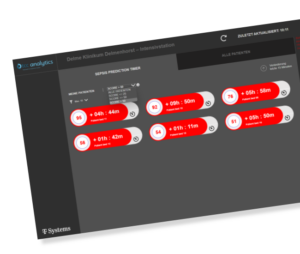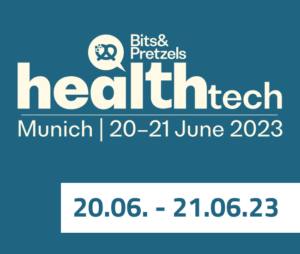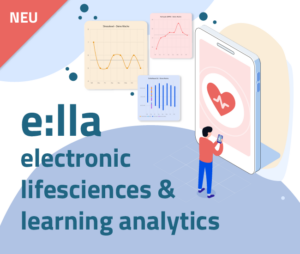Machine learning from us for us
Artificial intelligence is a popular topic at the moment. Solutions and functions that we can test lately are giving us a glimpse into the world of machine learning. The surprising learning curve not only shows us the ability of certain thinking, but also the potential to draw insights, as well as to process developments and events and analyze them. We can use this process by letting algorithms take care of analyzing and processing, which helps us to speed up, optimize and improve current work steps. We can use this process to help ourselves in the long run, to overcome crises and to use our given resources sustainably, in places where they are needed.
Medical algorithms as a way out of the crisis
Resources such as labor, materials, time and expertise are scarce in the current healthcare environment, limiting us not only in the quality of care but also at many other ends of the chain. From employee satisfaction to data management, all factors lie on a delicate and ever-unbalanced scale. In places where we need quick insights and analytical evaluations, we can rely on artificial intelligence. This new resource allows us to provide sustainable relief by training algorithms to take on tasks that help us keep the scale in balance and restore quality to healthcare.
Demo algorithm at DMEA
TCC Analytics has recognized this missing link in the medical infrastructure and has already successfully trained the first algorithms ready for market, paving the way for the future. At this year’s DMEA, we were able to present our sepsis algorithm live for the first time together with our partner, Telekom. Using real-time data, the algorithm determines not only whether sepsis will occur, but also when.
The intuitive dashboard warns the treating medical team on site up to ten hours before the onset of sepsis and is thus approximately seven hours faster than previous prediction methods. The revolutionary dashboard uses vital data sent via existing infrastructures in the hospital to the secure Open Telekom Cloud, where it analyzes the possibility of sepsis using TCC Analytics’ AI algorithm.
Creating time for faster response and better healing
As we know, treatments in intensive care units are time-consuming and a demanding task in times of staff and specialist shortages. Approximately 35% of all patients who experience sepsis die from it. By using trained and highly qualified algorithms, we want to give back the chance to the existing healthcare system to be able to react. We are filling the gaps that cannot be filled by adding staff… We add missingmissingmissing processes on which existing staff can growgrowgrow and create the time to train new staff. This is necessary not only in intensive care units, but in all units of a medical facility. We see hospitals and medical facilities as a holistic network that must function and communicate as such to ensure quality, sustainable care, which happens in time. Using artificial intelligence and machine learning, we bring out the interconnections of the existing ends to enable this self-contained process. For a medical future that holds more. For everyone involved.





